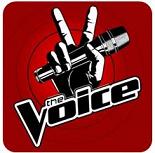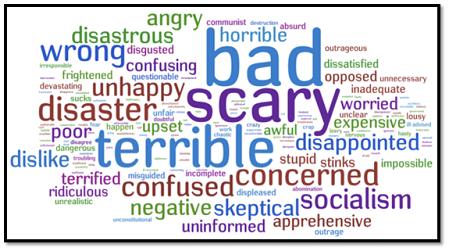Is there something new emerging from the formula that has dominated television since the early days of Survivor and American Idol? And does it have implications for radio and the ways in which brands utilize the social space?
Since Lori Lewis joined our company a year ago, she has urged all of us at Jacobs Media (and hopefully our clients, too) to reconsider the rising value of caring, responding, and treating listeners with respect. And she has preached that those characteristics are the building blocks that truly define success on platforms like Facebook.
 Yet, television’s addiction to so-called “reality TV” has more often been typified by meanness and humiliation. These shows are less expensive to produce than dramas and even sitcoms, but their raison d’être has always had that element of making people look bad.
Yet, television’s addiction to so-called “reality TV” has more often been typified by meanness and humiliation. These shows are less expensive to produce than dramas and even sitcoms, but their raison d’être has always had that element of making people look bad.
From Anne Robinson’s badgering on The Weakest Link to Snooki and the gang on Jersey Shore, these shows are often focused on our worst human qualities.
And to a great degree, many radio shows – from Limbaugh to Stern – have often operated on the same fuel. From outrage to outrageous, we love to hear people get hung up on, look bad, put on the spot, called names, and harassed.
Or do we? Bullying in schools has become a major issue. And the power of social media has been turned on to deal with and respond to people who make it a business to humiliate others.
So when The New York Times reported on the success of NBC’s The Voice last weekend, it caused me to consider that perhaps a new mindset may be emerging. The Voice – yes, another consumer generated talent show – has experienced great audience support this year, and has actually bested American Idol in the ratings.
While there are many theories about why The Voice is winning for NBC, an also-ran network in recent years, Stephen Burke – NBCUniversal’s chief (from Comcast) – may have summed it up best:
 What a concept – respect for the average person, winner or not; the ability to appreciate someone’s talent, even if they don’t win the big prize; a genuine celebration of effort and contribution.
What a concept – respect for the average person, winner or not; the ability to appreciate someone’s talent, even if they don’t win the big prize; a genuine celebration of effort and contribution.
And when you think about it, those are some of the same values that generate buzz, comments, and sharing on Facebook. It’s not about Katy Perry tickets at 2:15 nor is it about yelling, anger, and frustration. It is about responding, sharing, and acknowledging.
The political climate during this Presidential primary campaign has already turned off millions of voters – even those motivated for a change in the White House in 2012. The Republican primaries may be making a statement about the quality of challengers to President Obama, as some suggest.
Or they may be telling us that this cycle of negative advertising may have run its course. Yes, I know the pundits point to a direct connection between “anti” ads and their direct results in subsequent primaries.
But none of that speaks to a larger sense of frustration and hopelessness among people from both sides of the aisle and the fence. As Congress and the President have spent the last several years locking horns, little has gotten done that changes and improves our lives. And we may see the net effect of all this in the form of lower voter turnout in November. (And remember that there’s more than 7 months of negative ads still to come.)
The word cloud below from FactCheck.org measured political ads from a few years back. I would think that an updated version from the past twelve months would look largely the same, perhaps with the addition of the words “lies” and other vitriol.
 When Chrysler’s Super Bowl ad with Clint Eastwood somehow got “political,” it had to send out a message to both sides that the discourse has turned even uglier. In the weeks that have followed, the thread has taken on an even more negative skew.
When Chrysler’s Super Bowl ad with Clint Eastwood somehow got “political,” it had to send out a message to both sides that the discourse has turned even uglier. In the weeks that have followed, the thread has taken on an even more negative skew.
This isn’t a political blog, so please don’t take my comments above as judgments or opinions about one side or one candidate versus another. I actually see the larger environment presenting a sort of left-handed opportunity if you look deep enough into the culture of the moment.
The deteriorating climate provides smart radio operators and dialed-in DJs with an opportunity to mine the same territory that is seemingly winning for The Voice. Being nice, respectful, personal, and caring may not appeal to everyone, but for people who have been subjected to the opposite behaviors for more than a decade, it is may be welcome relief.
For those who are being subjected to negative, angry political Robo-Calls, why would you even want to use those same tools to market your brand in 2012? A personal call, quick email response, and even a “like” from a favorite DJ on Facebook could be that high-touch moment that builds relationships for your station – not tear them down.
A positive, upbeat outlook that provides your audience with a sense of relief from the yelling, the bombast, the put-downs, and the humiliation could be a position that is unbeatable – not just on Facebook but on the air.
Let me know how it works for you.
- Media And Technology In 2025: Believe It Or Not! - April 18, 2025
- In Radio, You Just Never Know - April 17, 2025
- The Secret To Making A Great Podcast (And Great Radio) - April 16, 2025




Two words describe my hope for changing our current environment of hostility.
CIVILITY & CONSIDERATION. Do I think we have a prayer??? Maybe some day we’ll look back on folks like Rush and thank them for going over the line.
Good thoughts, Dick. After living through the Michigan primary last week and the incessant tv ads and robo calls, it’s definitely time for a breather. And we’ve got 8 months until the election! Hopefully civility will emerge as a counter-balance. Certainly radio stations need to be thinking about this as they develop their marketing plans – why would anyone want to do robocalls in this environment?
A thing or two could be learned from Canada –
‘Canada’s Got Talent’, which debuted on Sunday, has been described as “celebratory as opposed to exploitative” as a contrast to the Simon Cowell style of reality show.
Matt – More proof that maybe we’re all tired of the negative noise. How were the ratings?
Very good. Apparently it was the most-watched premiere in network history.
That says a lot.